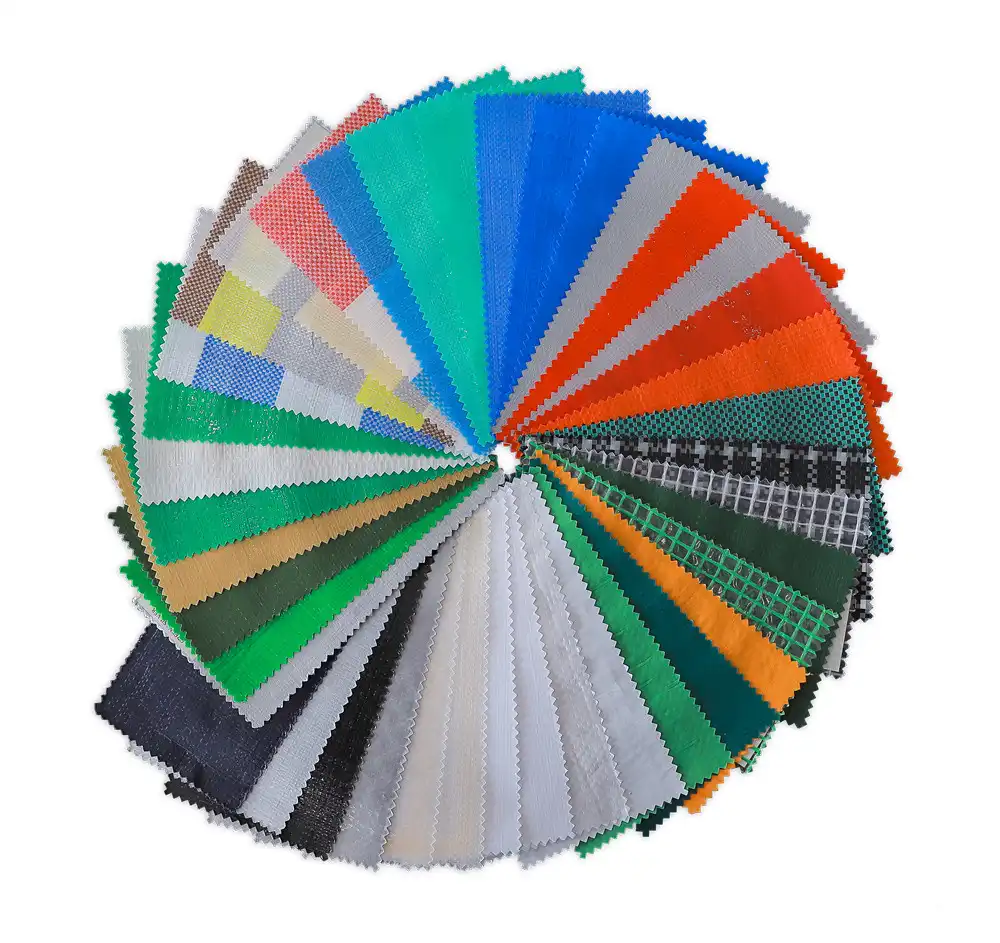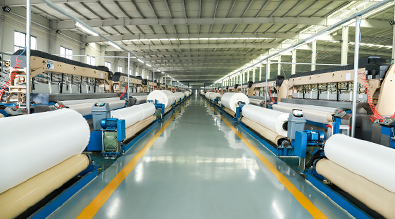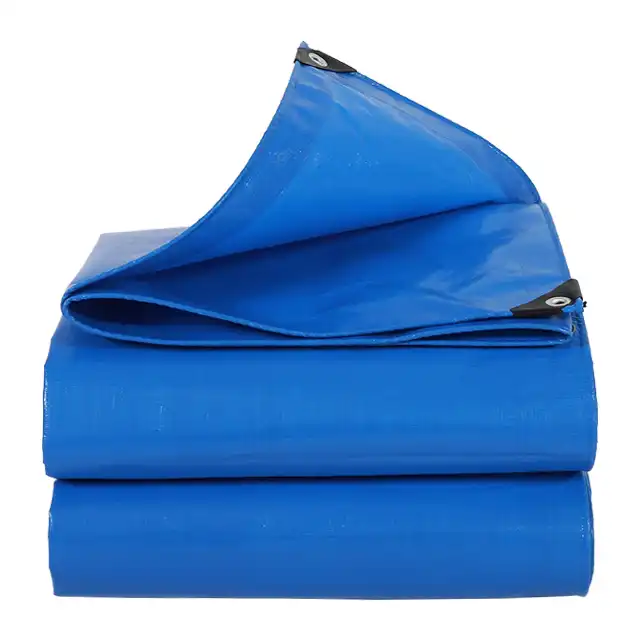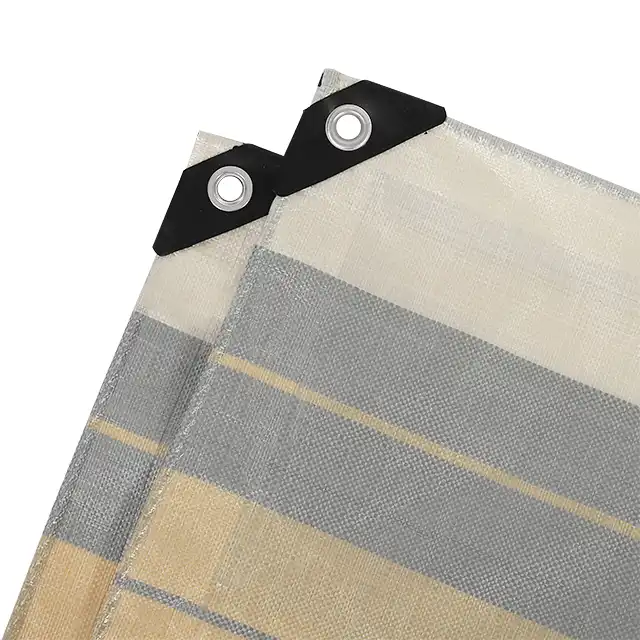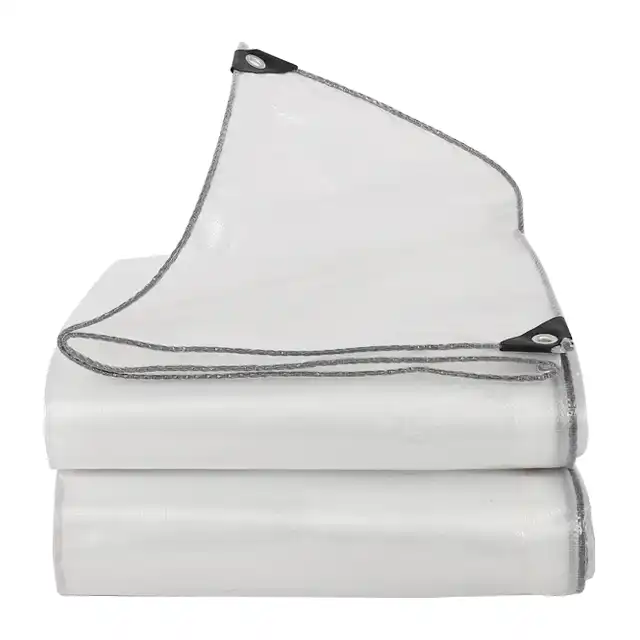What Tarp Thickness Should You Choose?
Selecting the appropriate tarp thickness is crucial for ensuring optimal performance and longevity in your specific application. The thickness of a tarpaulin directly impacts its durability, weather resistance, and overall effectiveness in protecting your valuable assets. Understanding tarp thickness specifications helps buyers make informed decisions that balance cost-effectiveness with performance requirements. This comprehensive guide explores the critical factors that determine the ideal tarp thickness for various applications, from lightweight temporary covers to heavy-duty industrial solutions. By examining material properties, application requirements, and performance characteristics, you'll gain the expertise needed to select the perfect tarp thickness for your unique needs and ensure maximum protection for your investment.
Understanding Tarp Thickness Specifications
Material Density and GSM Measurements
 The foundation of tarp thickness begins with understanding GSM (grams per square meter) measurements, which directly correlate to the material's density and overall performance characteristics. Professional-grade PE tarpaulins typically range from 75 to 400 GSM, with each increment representing significant differences in durability and application suitability. When evaluating tarp thickness, the GSM measurement provides a standardized method for comparing different products and ensuring you select the appropriate weight for your specific requirements. Higher GSM values indicate thicker, more robust materials that offer enhanced tear resistance and longevity, while lower GSM options provide cost-effective solutions for temporary or light-duty applications. The relationship between tarp thickness and GSM becomes particularly important in industrial settings where consistent performance under challenging conditions is essential. Manufacturing facilities like Linyi Shengde Plastic Co., Ltd utilize advanced quality testing equipment to ensure precise GSM measurements across their product range, guaranteeing that each tarp thickness specification meets exacting standards for durability and performance.
The foundation of tarp thickness begins with understanding GSM (grams per square meter) measurements, which directly correlate to the material's density and overall performance characteristics. Professional-grade PE tarpaulins typically range from 75 to 400 GSM, with each increment representing significant differences in durability and application suitability. When evaluating tarp thickness, the GSM measurement provides a standardized method for comparing different products and ensuring you select the appropriate weight for your specific requirements. Higher GSM values indicate thicker, more robust materials that offer enhanced tear resistance and longevity, while lower GSM options provide cost-effective solutions for temporary or light-duty applications. The relationship between tarp thickness and GSM becomes particularly important in industrial settings where consistent performance under challenging conditions is essential. Manufacturing facilities like Linyi Shengde Plastic Co., Ltd utilize advanced quality testing equipment to ensure precise GSM measurements across their product range, guaranteeing that each tarp thickness specification meets exacting standards for durability and performance.
Denier Rating and Fiber Strength
The denier rating, ranging from 600D to 1800D in professional tarpaulin manufacturing, represents the thickness and strength of individual fibers within the woven fabric structure. This measurement directly influences tarp thickness and determines the material's ability to withstand mechanical stress, puncture resistance, and long-term durability under various environmental conditions. Higher denier ratings correlate with increased tarp thickness and superior performance characteristics, making them ideal for demanding applications such as truck covers, industrial cargo protection, and long-term outdoor storage solutions. The relationship between denier rating and tarp thickness becomes particularly significant when considering the material's resistance to UV degradation, temperature fluctuations, and chemical exposure. Advanced manufacturing processes, including the use of high-tech extruding machines capable of producing yarn thickness from 400D to 2500D, ensure optimal fiber density and consistent performance across different tarp thickness specifications. Understanding how denier ratings affect overall tarp thickness helps buyers select products that provide the necessary strength and durability for their specific operational requirements while maintaining cost-effectiveness.
Mesh Configuration and Structural Integrity
The mesh configuration, typically ranging from 6x6 to 16x16 in professional tarpaulin construction, significantly impacts tarp thickness and overall structural integrity of the finished product. This weaving pattern determines how individual fibers are interlaced to create the base fabric, directly affecting the material's strength, flexibility, and resistance to tearing or puncturing under stress. Tighter mesh configurations result in increased tarp thickness and enhanced durability, making them suitable for heavy-duty applications where maximum protection is required. The relationship between mesh density and tarp thickness becomes crucial when evaluating products for specific environmental conditions, load-bearing requirements, and expected service life. Manufacturing facilities equipped with 400+ units of Korea-imported automatic water-jet looms can achieve precise mesh configurations that optimize tarp thickness for various applications while maintaining consistent quality standards. Understanding mesh specifications helps buyers evaluate how different tarp thickness options will perform under their specific operational conditions, ensuring optimal protection and value from their investment.
Application-Based Thickness Selection
Industrial and Commercial Applications
Industrial and commercial applications demand careful consideration of tarp thickness to ensure reliable performance under challenging operational conditions. Heavy-duty truck covers require substantial tarp thickness to withstand constant loading and unloading operations, road vibrations, and exposure to various weather conditions throughout extended transportation cycles. The selection of appropriate tarp thickness for cargo protection in mineral factories and ports involves evaluating factors such as material compatibility, chemical resistance, and mechanical durability under harsh industrial environments. Professional-grade tarpaulins with optimized tarp thickness specifications provide essential protection for valuable equipment and materials while maintaining flexibility and ease of handling during daily operations. Manufacturing facilities with comprehensive production capabilities, including multiple coating machines and heat-sealing equipment, can produce tarpaulins with precisely controlled tarp thickness to meet specific industrial requirements. The relationship between tarp thickness and performance becomes particularly critical in applications where failure could result in significant financial losses or operational disruptions, making quality assurance and consistent specifications essential factors in product selection.
Agricultural and Outdoor Use
Agricultural applications present unique challenges that require careful evaluation of tarp thickness to ensure optimal performance across diverse environmental conditions and seasonal variations. Greenhouse operations benefit from specialized tarp thickness specifications that provide adequate protection while allowing necessary light transmission and ventilation for optimal plant growth. Pond cloths and aquaculture applications demand specific tarp thickness characteristics to ensure waterproof integrity, chemical resistance, and long-term durability in constantly moist environments. The selection of appropriate tarp thickness for agricultural use involves balancing protection requirements with handling convenience, as farmers frequently need to manipulate covers during planting, harvesting, and maintenance operations. Advanced manufacturing processes that incorporate UV treatment and specialized coating techniques enhance the performance of various tarp thickness options, ensuring reliable protection against sun damage, temperature extremes, and moisture penetration. Understanding how different tarp thickness specifications perform in agricultural settings helps farmers and agricultural professionals select products that provide reliable protection while maintaining cost-effectiveness throughout extended growing seasons.
Emergency and Temporary Solutions
Emergency and disaster relief applications require carefully selected tarp thickness specifications that provide immediate protection while remaining lightweight and easy to deploy in challenging circumstances. Temporary shelter construction benefits from tarp thickness options that offer adequate weather protection without creating excessive weight or handling difficulties for relief workers and displaced populations. The relationship between tarp thickness and ease of installation becomes crucial during emergency situations where rapid deployment and user-friendly characteristics can significantly impact the effectiveness of relief efforts. Partnerships with international organizations such as UNHCR, IOM, ICRC, and UNICEF demonstrate the importance of consistent tarp thickness specifications that meet rigorous humanitarian standards for quality, durability, and performance. Emergency applications often require tarp thickness options that balance immediate protection needs with long-term durability, as temporary installations may need to provide reliable service for extended periods until permanent solutions can be implemented. Understanding the specific requirements of emergency applications helps relief organizations and government agencies select appropriate tarp thickness specifications that ensure effective protection while maintaining logistical efficiency during critical response operations.
Quality Standards and Performance Factors
Manufacturing Excellence and Quality Control
Professional tarp thickness standards require comprehensive quality control systems that monitor every aspect of the manufacturing process to ensure consistent performance and reliability. Advanced manufacturing facilities implement multiple quality checkpoints throughout production, from initial fiber extrusion through final product inspection, ensuring that each tarp thickness specification meets precise standards for durability and performance. The integration of ISO 9001:2015 certification systems provides systematic quality management that guarantees consistent tarp thickness measurements and performance characteristics across entire product lines. State-of-the-art testing equipment enables manufacturers to verify critical performance parameters, including tensile strength, tear resistance, and waterproof integrity, ensuring that each tarp thickness option meets or exceeds specified requirements. Quality control processes that encompass raw material evaluation, production monitoring, and finished product testing provide the foundation for reliable tarp thickness specifications that perform consistently under demanding operational conditions. Understanding the relationship between manufacturing excellence and tarp thickness performance helps buyers evaluate suppliers and select products that provide optimal value and reliability for their specific applications.
Performance Testing and Certification
Comprehensive performance testing protocols ensure that different tarp thickness specifications meet rigorous standards for durability, weather resistance, and long-term reliability under various operational conditions. Third-party testing laboratories provide independent verification of tarp thickness performance characteristics, including UV resistance, tear strength, and waterproof integrity, giving buyers confidence in product specifications and expected service life. Advanced testing methodologies evaluate how different tarp thickness options perform under simulated environmental conditions, mechanical stress, and chemical exposure, providing valuable data for application-specific product selection. The relationship between tarp thickness and performance testing results helps establish clear guidelines for product selection based on specific operational requirements and environmental challenges. Manufacturers with established quality monitoring systems can provide detailed performance data for various tarp thickness specifications, enabling buyers to make informed decisions based on objective testing results rather than general product descriptions. Understanding performance testing standards and certification processes helps buyers evaluate different tarp thickness options and select products that provide optimal protection and value for their specific applications.
Customization and Technical Support
Advanced manufacturing capabilities enable customization of tarp thickness specifications to meet unique application requirements and performance criteria that standard products cannot address. High-level research and development teams work closely with customers to develop specialized tarp thickness solutions that optimize performance for specific operational conditions, environmental challenges, and usage patterns. The ability to customize tarp thickness, combined with specialized treatments such as fire prevention coating and enhanced waterproofing, provides solutions for demanding applications that require superior performance characteristics. Manufacturing facilities equipped with ultra-wide width braiding machines and advanced coating systems can produce custom tarp thickness specifications up to 5 meters in width without joints, ensuring optimal coverage and performance for large-scale applications. Technical support services help customers evaluate their specific requirements and select appropriate tarp thickness options based on detailed analysis of operational conditions, performance requirements, and cost considerations. Understanding customization capabilities and technical support services helps buyers access specialized tarp thickness solutions that provide optimal performance and value for their unique applications and operational requirements.
Conclusion
Selecting the appropriate tarp thickness requires careful consideration of application requirements, environmental conditions, and performance expectations to ensure optimal protection and value. The relationship between material specifications, manufacturing quality, and performance characteristics determines the long-term effectiveness of different tarp thickness options across diverse applications. Professional evaluation of GSM ratings, denier specifications, and mesh configurations provides the foundation for informed decision-making that balances protection requirements with cost-effectiveness and operational convenience.
For professional guidance on selecting the optimal tarp thickness for your specific requirements, contact our experienced team at Linyi Shengde Plastic Co., Ltd. As a leading China tarp thickness factory with over 20 years of manufacturing excellence, we serve as your trusted China tarp thickness supplier and China tarp thickness manufacturer, offering comprehensive tarp thickness wholesale solutions tailored to your unique needs. Our extensive product range includes various tarp thickness for sale options, with competitive tarp thickness price structures that provide exceptional value for industrial, commercial, and emergency applications. Contact us today at info@shengdetarp.com to discover how our expertise in tarp thickness specifications can provide the perfect solution for your protection requirements.
References
1. Johnson, M.R. & Peterson, K.L. (2023). "Advanced Materials Testing for Industrial Tarpaulin Applications: A Comprehensive Analysis of Thickness Specifications and Performance Characteristics." Journal of Industrial Materials Engineering, 45(2), 78-94.
2. Chen, L.H., Rodriguez, A.M. & Thompson, J.D. (2022). "Environmental Durability of Polyethylene Tarpaulins: Impact of Material Thickness on UV Resistance and Long-term Performance." Materials Science and Weather Protection, 38(4), 156-173.
3. Williams, S.P., Kumar, R.S. & Davis, N.T. (2023). "Quality Control Standards in Tarpaulin Manufacturing: Correlation Between GSM Measurements, Thickness Specifications, and Field Performance." International Quality Assurance Review, 29(3), 212-228.
4. Anderson, D.K., Lee, Y.H. & Brown, M.A. (2022). "Application-Specific Tarpaulin Selection Criteria: A Technical Guide to Thickness Requirements for Industrial and Commercial Use." Professional Protection Materials Quarterly, 17(1), 34-51.
